So, you've decided you'd like to raise backyard chickens for eggs and you've thought about the coop the breeds you might like and learned how to care for the chicks, now you need to decide where to get the chickens!
While some people start by buying older female chickens referred to as pullets, most opt for chicks. For the most part, chicks and pullets can be purchased from the same sources we'll discuss below. Healthy flocks start with selecting healthy chickens, so it's wise to purchase chickens of any age from a flock or hatchery that participates in The National Poultry Improvement Plan (NPIP). NPIP simply means the flock has been tested and is free from certain serious, contagious diseases, but not all.
CHICKS vs PULLETS
Chicks are purchased within a few days after hatching and begin laying eggs in approximately 5-6 months. Pullets (aka: started birds) are female chickens someone else has raised that are close to, if not already, laying eggs.
ADVANTAGES & DISADVANTAGES OF BUYING CHICKS
Advantages
- Ability to bond & socialize with people from very early age
- Much less expensive to purchase than pullets
- Very low risk of carrying diseases from environmental exposure
- No pre-existing behavioral problems or habits
- Vaccinations for Marek's Disease are available
Disadvantages
- Specialized care required initially
- Cost more to get to the point of lay
- Longer wait for eggs
- Risk of buying a male even with vent sexed chicks
ADVANTAGES & DISADVANTAGES OF BUYING PULLETS
Advantages
- Little to no wait for egg production
- No risk of buying a male (when dealing with an ethical seller)
Disadvantages
- No ability to bond with & socialize from a young age
- Some unwelcome behaviors and habits may already be ingrained
- More expensive to purchase than chicks
- Breed selection limited
- Risk of being duped by being sold old, much less productive hens
- Significant risk of carrying diseases from environmental exposure and parasites
5 month old Black White Faced Spanish pullet
WHERE TO BUY CHICKENS
Feed Stores
Corporately owned feed stores such as Tractor Supply Company (TSC) typically begin getting orders of chicks into their stores from hatcheries mid-February though April-ish. The main advantages are the low per chick cost and ability see & select each chick before purchasing. There's also nothing like the instant gratification of going into the store for chicken feed and taking home fluffy-cuties!
The disadvantages are limited breed selection and minimum purchase requirements of 4-6 chicks at a time (which exist for the safety of the chicks). I find that others are often willing to split an order after purchase, so I can get just a few baby chicks without having to build yet another chicken coop. The other limitation when buying from a large feed store is that local stores do not ordinarily know when chicks will arrive or which breeds they will get prior to arrival. Sometimes the potluck selection works out well though; I have gotten breeds I never would have imagined I'd add to my flock when happening upon them in the spring. (Fine, I stalk the stores during Chick Days. Don't judge.)
Independently owned feed stores often take breed orders prior to chick season, but also order breeds that are not spoken for in advance. Most buy their chicks through the same hatcheries you can buy from yourself. The advantages to buying through independent feed stores is the pre-order varieties to choose from and lower small-order costs than if ordering from hatchery to home. Smaller feed stores do not get as many regular shipments of chicks for sale as TSC stores, for example, and they tend to carry a very limited number of breeds.
Hatcheries
Chicks can be ordered from true hatcheries online, by phone or sometimes picked up at the hatcheries across the country from February through April and often, much later into spring and summer. Breed selection is extensive and chicks can be pre-ordered months in advance. If you're looking for a particular breed, learn when they begin taking orders and order early. Many hatcheries now offer small orders of between 3 and 10 chicks per order for sale, delivered by mail. Most hatcheries employ vent sexers to sort male from female chicks, a service smaller purveyors are not able to provide.
Online Middlemen
Most companies that sell chickens online do not hatch the chicks they sell; they accept orders and send them to a hatchery or breeder that ships chicks to customers. Surprised? I was. And disappointed.
When buying my first chicks, I chose an online company based near my home in Connecticut because I believed erroneously that the chicks would have a shorter trip home from the company in Connecticut than if I ordered through a hatchery in a different state. I had no idea My Pet Chicken was not a hatchery- but rather, a merchant taking orders and passing them on to hatcheries all over the country. That was disappointing to me, so, if transparency matters to you, ask if it is not apparent from the company's website that they are a hatchery or not. As WHERE the chicks will be shipped from. Know who you're buying from and what they do for the money you're paying.
Legitimate breeders
Allowing a rooster to mate with a hen in the backyard or farm yard does not make someone a breeder! If you're seeking a local source of chicks in a particular breed, check Breeders' Associations and clubs. Most reputable and legitimate breeders will be listed in these groups' directories and should be NPIP certified. The biggest disadvantage to purchasing chicks through a breeder is that sexing is not usually possible. The biggest disadvantage to purchasing pullets is the biosecurity dangers even in NPIP certified flocks.
THE DANGER ZONE
Buyer beware: auctions, swaps, fellow chicken keepers, poultry shows, newspapers and Craigslist are all super risky places to get chickens. Even birds that APPEAR healthy can be carriers of latent, communicable diseases. While many healthy chickens have been acquired in The Danger Zone, many flocks have been destroyed or sickened by acquisitions at such sources. Bringing together birds from many different sources into one flock is Poultry Biosecurity Russian Roulette at its finest.
HATCH YOUR OWN
Hatching eggs in an incubator can be a very rewarding way to add to your flock, but is better undertaken after a fair amount of reading to learn what the best practices and equipment are for a successful outcome. Visit my Hatch-Along with The Chicken Chick series HERE to see whether incubator-mania might be for you!
A terrific alternative to artificial incubation is having a broody hen do all the work for you! It's not as simple as it sounds so read this article to determine whether it's workable in your flock.
Kathy Shea Mormino
Affectionately known internationally as The Chicken Chick®, Kathy Shea Mormino shares a fun-loving, informative style to raising backyard chickens. …Read on


shop my SPONSORS
So, you've decided you'd like to raise backyard chickens for eggs and you've thought about the coop the breeds you might like and learned how to care for the chicks, now you need to decide where to get the chickens!
While some people start by buying older female chickens referred to as pullets, most opt for chicks. For the most part, chicks and pullets can be purchased from the same sources we'll discuss below. Healthy flocks start with selecting healthy chickens, so it's wise to purchase chickens of any age from a flock or hatchery that participates in The National Poultry Improvement Plan (NPIP). NPIP simply means the flock has been tested and is free from certain serious, contagious diseases, but not all.
CHICKS vs PULLETS
Chicks are purchased within a few days after hatching and begin laying eggs in approximately 5-6 months. Pullets (aka: started birds) are female chickens someone else has raised that are close to, if not already, laying eggs.
ADVANTAGES & DISADVANTAGES OF BUYING CHICKS
Advantages
- Ability to bond & socialize with people from very early age
- Much less expensive to purchase than pullets
- Very low risk of carrying diseases from environmental exposure
- No pre-existing behavioral problems or habits
- Vaccinations for Marek's Disease are available
Disadvantages
- Specialized care required initially
- Cost more to get to the point of lay
- Longer wait for eggs
- Risk of buying a male even with vent sexed chicks
ADVANTAGES & DISADVANTAGES OF BUYING PULLETS
Advantages
- Little to no wait for egg production
- No risk of buying a male (when dealing with an ethical seller)
Disadvantages
- No ability to bond with & socialize from a young age
- Some unwelcome behaviors and habits may already be ingrained
- More expensive to purchase than chicks
- Breed selection limited
- Risk of being duped by being sold old, much less productive hens
- Significant risk of carrying diseases from environmental exposure and parasites
5 month old Black White Faced Spanish pullet
WHERE TO BUY CHICKENS
Feed Stores
Corporately owned feed stores such as Tractor Supply Company (TSC) typically begin getting orders of chicks into their stores from hatcheries mid-February though April-ish. The main advantages are the low per chick cost and ability see & select each chick before purchasing. There's also nothing like the instant gratification of going into the store for chicken feed and taking home fluffy-cuties!
The disadvantages are limited breed selection and minimum purchase requirements of 4-6 chicks at a time (which exist for the safety of the chicks). I find that others are often willing to split an order after purchase, so I can get just a few baby chicks without having to build yet another chicken coop. The other limitation when buying from a large feed store is that local stores do not ordinarily know when chicks will arrive or which breeds they will get prior to arrival. Sometimes the potluck selection works out well though; I have gotten breeds I never would have imagined I'd add to my flock when happening upon them in the spring. (Fine, I stalk the stores during Chick Days. Don't judge.)
Independently owned feed stores often take breed orders prior to chick season, but also order breeds that are not spoken for in advance. Most buy their chicks through the same hatcheries you can buy from yourself. The advantages to buying through independent feed stores is the pre-order varieties to choose from and lower small-order costs than if ordering from hatchery to home. Smaller feed stores do not get as many regular shipments of chicks for sale as TSC stores, for example, and they tend to carry a very limited number of breeds.
Hatcheries
Chicks can be ordered from true hatcheries online, by phone or sometimes picked up at the hatcheries across the country from February through April and often, much later into spring and summer. Breed selection is extensive and chicks can be pre-ordered months in advance. If you're looking for a particular breed, learn when they begin taking orders and order early. Many hatcheries now offer small orders of between 3 and 10 chicks per order for sale, delivered by mail. Most hatcheries employ vent sexers to sort male from female chicks, a service smaller purveyors are not able to provide.
Online Middlemen
Most companies that sell chickens online do not hatch the chicks they sell; they accept orders and send them to a hatchery or breeder that ships chicks to customers. Surprised? I was. And disappointed.
When buying my first chicks, I chose an online company based near my home in Connecticut because I believed erroneously that the chicks would have a shorter trip home from the company in Connecticut than if I ordered through a hatchery in a different state. I had no idea My Pet Chicken was not a hatchery- but rather, a merchant taking orders and passing them on to hatcheries all over the country. That was disappointing to me, so, if transparency matters to you, ask if it is not apparent from the company's website that they are a hatchery or not. As WHERE the chicks will be shipped from. Know who you're buying from and what they do for the money you're paying.
Legitimate breeders
Allowing a rooster to mate with a hen in the backyard or farm yard does not make someone a breeder! If you're seeking a local source of chicks in a particular breed, check Breeders' Associations and clubs. Most reputable and legitimate breeders will be listed in these groups' directories and should be NPIP certified. The biggest disadvantage to purchasing chicks through a breeder is that sexing is not usually possible. The biggest disadvantage to purchasing pullets is the biosecurity dangers even in NPIP certified flocks.
THE DANGER ZONE
Buyer beware: auctions, swaps, fellow chicken keepers, poultry shows, newspapers and Craigslist are all super risky places to get chickens. Even birds that APPEAR healthy can be carriers of latent, communicable diseases. While many healthy chickens have been acquired in The Danger Zone, many flocks have been destroyed or sickened by acquisitions at such sources. Bringing together birds from many different sources into one flock is Poultry Biosecurity Russian Roulette at its finest.
HATCH YOUR OWN
Hatching eggs in an incubator can be a very rewarding way to add to your flock, but is better undertaken after a fair amount of reading to learn what the best practices and equipment are for a successful outcome. Visit my Hatch-Along with The Chicken Chick series HERE to see whether incubator-mania might be for you!
A terrific alternative to artificial incubation is having a broody hen do all the work for you! It's not as simple as it sounds so read this article to determine whether it's workable in your flock.



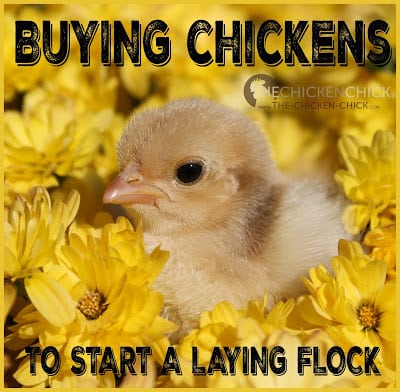

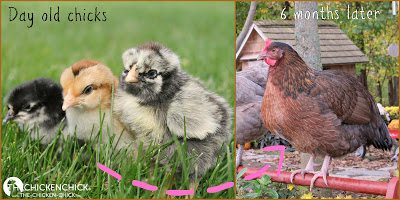

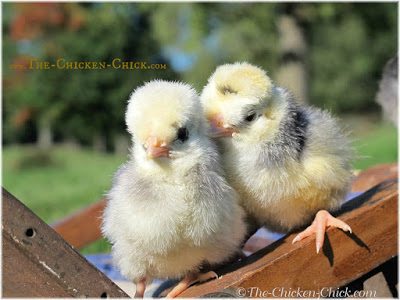
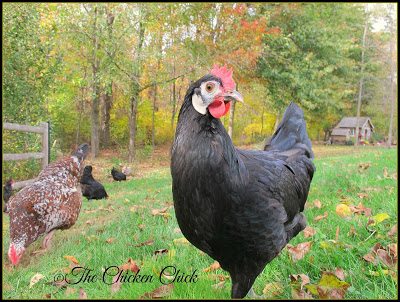
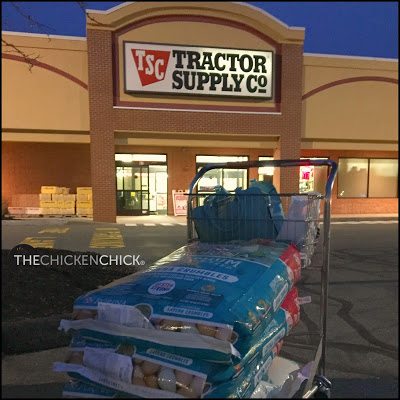
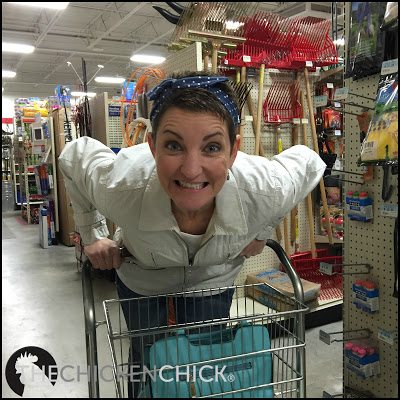
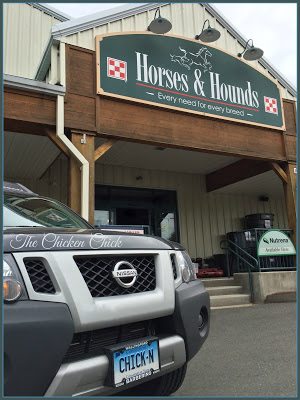
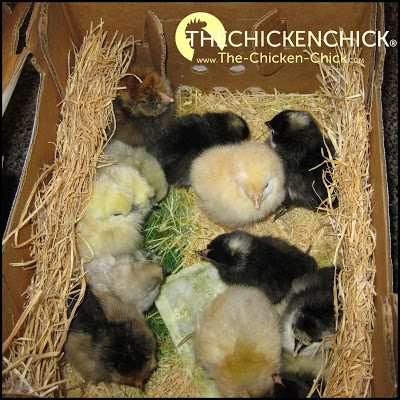

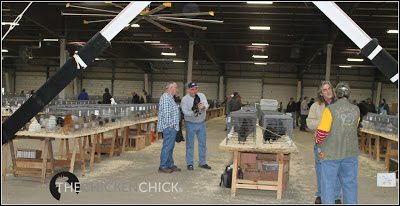
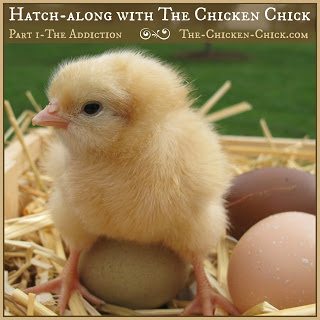
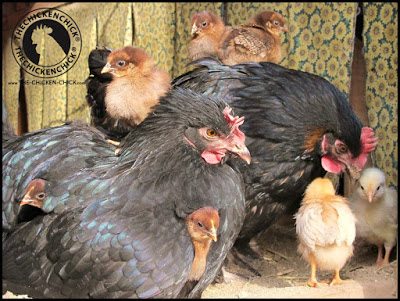






















Ok I would love to have the chicken fountain
Great article, sharing!
This watering system looks so cool and functional.
We are in the midst of building our coop right now! You’ve offered such great advice and encouragement, I just can’t thank you enough. This waterer would be the perfect addition?
This would be a ridiculously amazing addition to our coop!!! Keeping fingers crossed!!
Thank you for all of your helpful and educational posts! ??